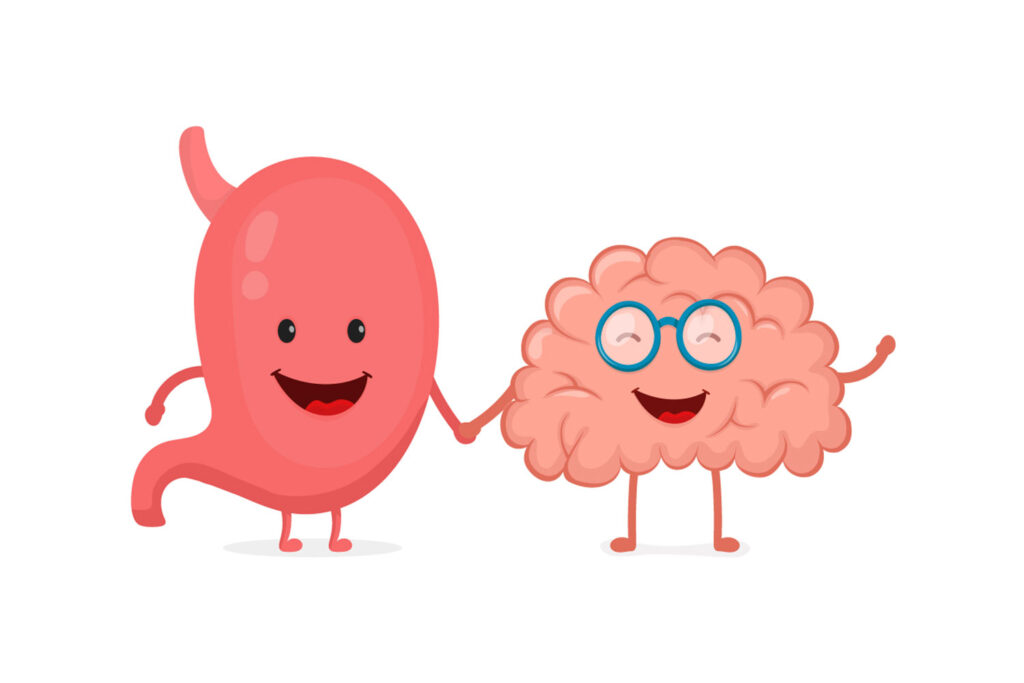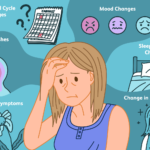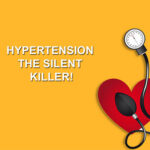
It’s Sunday September 26th, 2021, and we are at the tail end of a long weekend in which Trinidad and Tobago celebrated 45 years of being a Republic… and while it is a solemn reminder that the governing power of our country rests with its citizens, there are so many who feel powerless in the midst of the mental health challenges that have been induced or exacerbated by the COVID 19 pandemic. This evening we look at the connection between your mental health and your Gut Microbiome and offer some very practical strategies for your roadmap to resilience!
The idea that our Gut and our brain are in constant communication and consistently impact each other really took hold when a landmark study by Japanese researchers was published in 2004. It demonstrated that the release of stress hormones from areas of the brain called the hypothalamus and pituitary gland could be influenced by the presence or absence of certain gut bacteria. They used germ free mice and measured their stress response and then introduced certain species of bacteria into their gut and measured the response again. The better response was seen in the mice with the gut bacteria. Between 2004 and 2021 numerous studies have been published that reaffirmed the existence of the Gut-Brain relationship ; what is now referred to as the Gut-Brain Axis or the Microbiota-Gut-Brain-Axis. The communication is bidirectional and carried out using three pathways- our hormones, our immune system and our nerve fibres themselves.
What are some of the key findings that have emerged and how is it changing the way we look at mental health issues and interventions? Firstly, the gut microbiome in patients with depression differs in composition with a lower diversity and species richness than a non-depressed one. Secondly, researchers in Cork, Ireland showed that you could induce depression and behavioural changes in mice by transplanting a stool sample from a depressed human into the mice. Thirdly, a cross sectional review of dietary interventions and Mental health showed that the one diet that consistently improved mood, anxiety and depression symptoms was the Mediterranean diet or those that closely resembled it.
In Episode 5 of our podcast, Fibre and the Cinderella Story, we highlighted the numerous health benefits as well as the composition of the Mediterranean Diet. The traditional Mediterranean diet involves a relatively high consumption of vegetables, legumes, fruits, and unprocessed grains– with eggs and seafood eaten a few times a week, with low amounts of meat and meat products eaten a few times per month and the occasional sweet dessert. There is a preference for unsaturated fats coming chiefly from olive oil, fish, nuts, and seeds.
The high soluble fibre content of the Mediterranean diet has a strong positive influence on the diversity and species richness of the gut microbiome…the precise effect you want if you wish to harness the benefit for mental health resilience.
Here’s some more encouraging news- a review done in 2004 looking at all the studies done on exercise and mental health ,between 1996 and 2003 ,showed a consistent positive benefit for as little as 30 minutes per day , 5 times per week with more stable levels of positive neurotransmitters, dopamine and serotonin. The prescribed exercise was aerobic activity such as brisk walking or jogging or a combination of aerobic ,stretching and strength training.
While studies in mice and smaller populations laid the groundwork for many of the findings ,a newer study done with human patients in Belgium as part of the Flemish Gut Flora project, identified 10 strains of bacteria that had an impact on a patient’s quality of life. That being said, we must be cautious when looking towards commercial preparations of probiotics as therapy since more work needs to be done to show consistent benefit and sustained outcomes. Additionally there are ongoing studies on the effect of the gut microbiome on Autism spectrum disorder, Parkinson’s disease and Alzheimer’s.
As we continually encourage a holistic approach to mental health challenges and aim for treatment plans with the fewest side effects and greatest long-term benefits, let’s leverage the power of the gut microbiome by consuming roughly 30 grams of fibre daily from our delicious Caribbean vegetables and fruits and take advantage of any opportunity to have a consistent exercise regimen to release those helpful, mood lifting chemicals in our brain.
Mental health is at the core of our humanity. It enables us to lead rich and fulfilling lives and to participate in our communities. Despite the current uncertainty and fear, we must embrace the tools available to us , in our Caribbean setting, to live one day at a time , as we continue our journey to becoming Heroes of our own Health!




